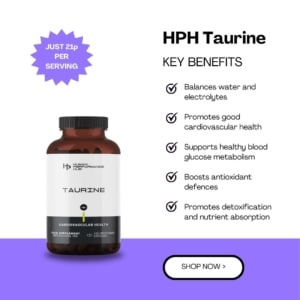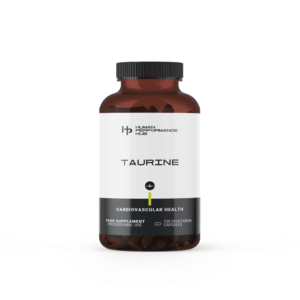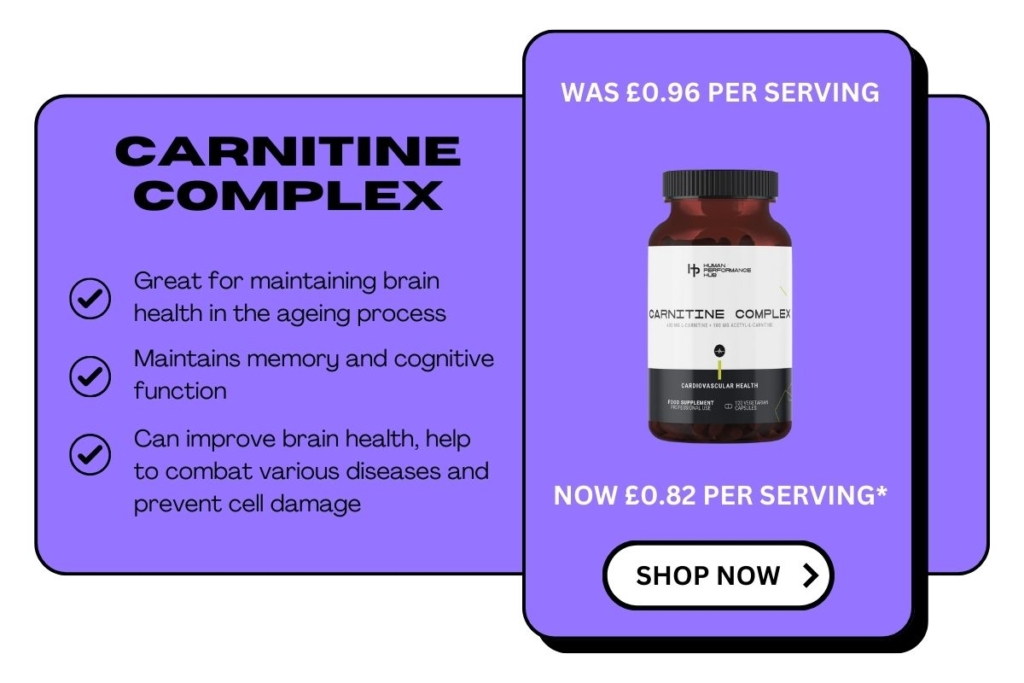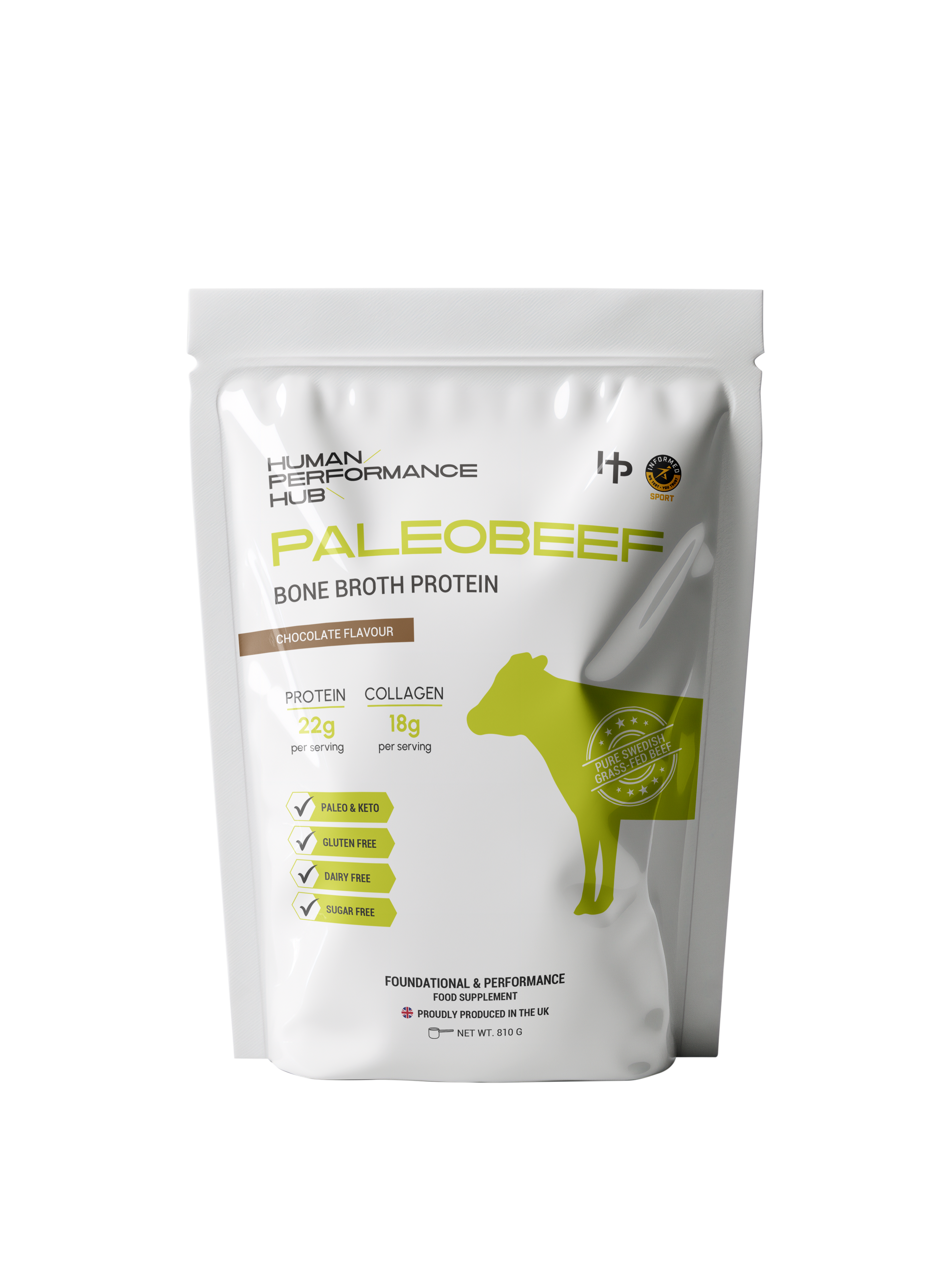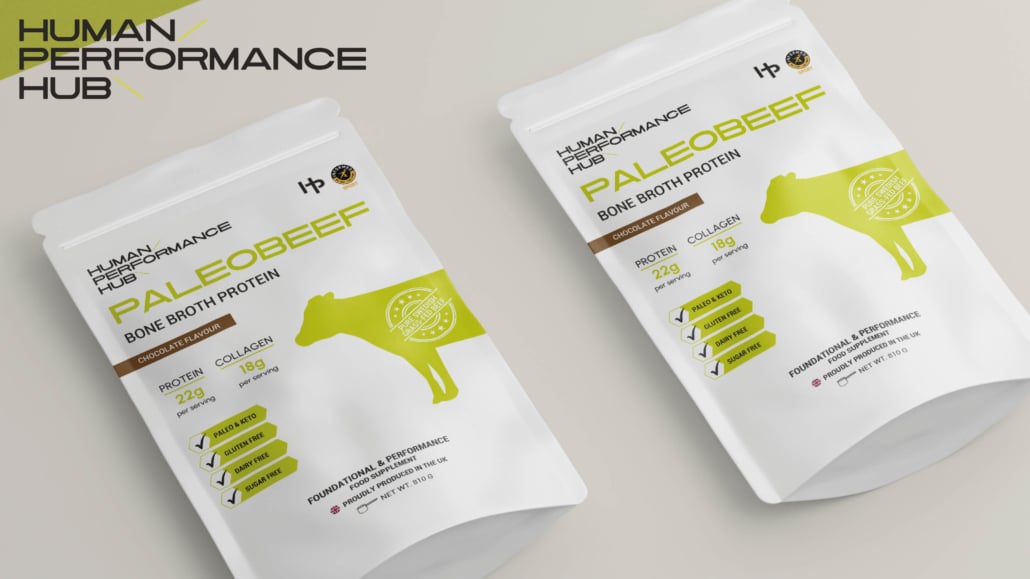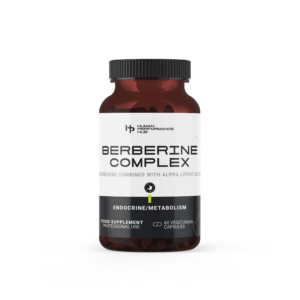Chlorella is a bright green algae dense in nutrients. It is considered a “superfood” because it is high in protein, iron, dietary fibre, B vitamins and complex carbohydrates. In this article, Human Performance Hub deep dives into everything chlorella related, from its many health benefits to dosage guidelines and most commonly asked questions. So, what kinds of benefits can you expect from taking chlorella tablets?
Chlorella has an extremely impressive nutritional profile. In particular, it supports:
- Immune system
- Weight management
- Cholesterol balance
- Blood pressure/sugar levels
- Aerobic endurance
On top of this, chlorella also binds to heavy metals, acts as an antioxidant and helps with respiratory diseases.
Keep reading to find out more about this freshwater algae.
What Is Chlorella?
According to BBC good food, ‘chlorella is a single-cell, blue-green freshwater algae with a rich colour due to its high concentration of chlorophyll.’ One teaspoon of chlorella in powder form contains:
- 11Kcal / 44KJ
- 1.8g Protein
- 0.1g Fat
- 0.5g Carbohydrate
- 3.4mcg Iodine
- 6.6mcg Vitamin B12
Whilst there are over 30 different species of chlorella, the most commonly researched forms include Chlorella vulgaris and Chlorella pyrenoidosa. Chlorella has a hard cell wall which humans cannot digest. As a result, it must be taken as a supplement to reap the benefits. Available in capsule, tablet, powder and extract form, studies have shown that Chlorella can have many health benefits.
Health Benefits of Taking Chlorella
Below, we’ve outlined the main advantages of taking chlorella tablets as a health supplement:
Nutritious
Referred to as a “super food” by many because of its impressive nutritional profile, Chlorella contains:
- Protein – Chlorella is 50-60% protein. In fact, it is a complete protein source, which means it contains all nine essential amino acids.
- Vitamin B12 – Some chlorella varieties may also contain vitamin B12 however, further research is required.
- Iron & Vitamin C – Depending on the supplement, Chlorella can provide anywhere from 6–40% of your daily need of iron. It’s also an excellent source of vitamin C, which helps you absorb iron.
- Antioxidants – These small green cells provide a wide range of antioxidants.
- Other vitamins & minerals – Chlorella provides small amounts of magnesium, zinc, copper, potassium, calcium, folic acid and other B vitamins.
- Omega-3s – Like other algae, chlorella contains some omega-3s. In fact, just 3 grams of chlorella delivers 100mg of omega-3s.
- Fibre – In large amounts, chlorella can be a good source of fibre. However, bear in mind that most supplements don’t provide even 1 gram of fibre per dose.
Curious about the benefits of Chlorella? Our Pure Chlorella Tablets are now in stock—see why they’re a top seller!
Binds To Heavy Metals
Often marked for its ‘detox’ benefits, animal studies suggest that chlorella is effective at binding with heavy metals and other harmful compounds. Heavy metals include some elements that are essential in small quantities, such as iron and copper; however, these can be toxic in large quantities.
Whilst it is rare for humans to experience such high levels of heavy metal toxicity, people can get exposed to heavy metals through pollution or certain jobs such as mining.
On top of its ability to weaken the heavy metal toxicity of the liver, brain and kidneys, chlorella has also been shown to help lower the amount of other harmful chemicals that are sometimes found in food. This includes dioxin, a hormone disruptor that can contaminate animals in the food supply.
Based on this evidence, it seems that chlorella could help enhance your body’s natural ability to clear toxins.
Immune System
Whilst evidence is limited so far, chlorella has been shown to enhance the immune response in both animal and human studies. In one small study, men were seen to produce more immune antibodies when they were supplementing with chlorella for a four-week period. Similarly, in another small study, chlorella supplements showed an increase in immune cells called ‘natural killer’ cells. These are extremely important in our fight against cancer and microbial infection.
Nevertheless, findings have been mixed, with some studies showing little to no effect. For example, one study found that chlorella supplements enhanced immune function in participants aged 50-55, but not those over 55. Consequently, it’s fair to argue that chlorella may have immune-boosting effects in some populations and age groups, but not in all.
Weight Management
There has been some limited evidence from animal studies to suggest that chlorella can help with weight loss by improving fat metabolism and blood sugar regulation. This statement is further supported by The Journal of Medicinal Food, which reported that chlorella resulted in noticeable reductions in body fat percentage, serum total cholesterol and fasting blood glucose levels over a 16-week trial.
Cholesterol Balance
Several studies indicate a potential role for chlorella in helping balance cholesterol levels. In particular, studies have shown that taking 5-10 grams of chlorella daily lowered total and LDL cholesterol and triglycerides in people with high blood pressure or elevated cholesterol. This may be down to the nutrients found in chlorella, such as vitamin B3 (Niacin), carotenoids, fibre and protective antioxidants.
Acts as an Antioxidant
Chlorella contains several compounds that are considered antioxidants, including:
- Chlorophyll
- Vitamin C
- Beta-carotene
- Lycopene
- Lutein
These antioxidants can help fight many chronic diseases. Some actually reduce the production of advanced glycation end products, which drive many of the complications of diabetes.
Blood Pressure Management
Chlorella supplements could help promote heart and kidney health, both of which are essential for normal blood pressure. In one human study, daily supplementation of chlorella helped reduce high blood pressure while another small study reported less stiffness in the arteries, a factor that directly contributes to high blood pressure.
Blood Sugar Levels
Some research shows that chlorella may help lower blood sugar levels. One study discovered that taking chlorella for 12 weeks lowered fasting blood sugar levels in both healthy individuals and those at high risk of lifestyle-related diseases. On top of this, studies have shown that supplementing with chlorella improves blood sugar control and increases insulin sensitivity in patients with non-alcoholic fatty liver disease.
Respiratory Diseases
Managing respiratory diseases such as asthma and chronic obstructive pulmonary disease often requires controlling inflammation. Fortunately, chlorella has some components that can help reduce inflammation, including its antioxidants. In fact, one study found that chlorella supplements improved antioxidant status in COPD patients.
Aerobic Endurance
There has only been one study conducted so far surrounding chlorella’s effect on aerobic endurance, but it showed a positive result. Researchers gave a group of young adults six grams of chlorella or a placebo daily for four weeks. At the end of the study, the chlorella group showed a significantly improved ability to saturate their lungs with oxygen, which is a measure of endurance. Alternatively, the placebo group did not experience any changes in endurance. This effect may be due to chlorella’s branched-chain amino acid content.
*Please Note – Whilst there are many studies to support the health benefits of chlorella, further evidence is required to fully support these statements.
How Does Chlorella Support Oxygen Delivery and Aerobic Performance?
While chlorella is a natural source of plant-based protein and contains branched-chain amino acids (BCAAs), the improvements in aerobic performance sometimes reported in the literature are unlikely to be driven by protein intake alone, particularly at typical serving sizes (1–3g per day).
The more physiologically supported mechanism relates to vascular function and nitric oxide (NO) production.
Chlorella contains bioactive compounds including arginine, antioxidants, chlorophyll derivatives, and phytonutrients that may support endothelial health. Improved endothelial function can enhance nitric oxide bioavailability, leading to vasodilation (widening of blood vessels). This process may improve blood flow, oxygen delivery, and oxygen utilisation during exercise.
Several human studies have demonstrated that chlorella supplementation may:
-
Improve arterial stiffness
-
Support vascular elasticity
-
Enhance systemic circulation
-
Improve markers of cardiovascular efficiency
Improved oxygen transport is therefore likely a secondary effect of enhanced vascular function, rather than a direct effect on lung tissue or respiratory capacity.
This aligns with broader research on nitrate-rich and polyphenol-rich plant foods (such as beetroot, spinach, pomegranate, and dark chocolate), which enhance exercise efficiency via nitric oxide pathways.
Chlorella should therefore be understood as a whole-food microalgae providing multiple supportive nutrients, rather than a high-dose protein intervention for endurance enhancement.
References
-
Otsuki T et al. (2011). Effects of chlorella intake on arterial stiffness in humans.
-
Merchant RE et al. (2002). Nutritional supplementation with chlorella pyrenoidosa improves immune function.
-
Bailey SJ et al. (2009). Dietary nitrate supplementation reduces the O2 cost of exercise.
-
Larsen FJ et al. (2007). Dietary inorganic nitrate improves mitochondrial efficiency.
Correction Notice:
This section was updated for scientific clarity and accuracy on 23 February 2026 to better reflect the current understanding of nitric oxide–mediated vascular mechanisms in aerobic performance.
Other Potential Benefits
Some other possible benefits of chlorella include:
- Promotes eye health – Chlorella contains lutein and zeaxanthin, two carotenoids that protect the eye and lower the risk of macular degeneration.
- Supports liver health – Chlorella supplements have been shown to improve markers of liver health in people with liver disease.
- Improved digestion – Lots of research claims that chlorella eases digestion and reduces bloating.
- Relieves PMS – Anecdotal evidence says that chlorella can relieve symptoms of premenstrual syndrome (PMS).
Please bear in mind that there’s little research to support these claims.
How To Supplement With Chlorella
At Human Performance Hub, the recommended starting dose is 3 capsules of chlorella per day with a meal, which can build into 10 caps x 3 times per day. This would however, depend on how much support your body needs. Some individuals may require more, which is why you should always consult your doctor to get an individual recommendation before you begin taking chlorella tablets.
Is Chlorella Safe For Everyone?
Generally, chlorella is recognised as safe if used in the short-term, however it can cause some side effects for people in high-risk groups. This includes individuals who are:
- Pregnant
- Breastfeeding
- Iodine sensitive
- Allergic to mould
It can also affect those with a weakened immune system or individuals with autoimmune conditions. Some of the possible side effects include diarrhoea, nausea and stomach cramps. There have also been some reported cases of allergic reactions and an increase in sun sensitivity. However, it’s important to bear in mind that these side effects will not necessarily be present in everyone.
Chlorenergy Chlorella Tablets At Human Performance Hub
Native to Asia, our chlorella tablets at Human Performance Hub are high in protein, B vitamins, magnesium and zinc. With 300 small chlorella tablets in each sachet, Chlorenergy uses a Chlorella Vulgaris strand which is easily digestible and provides 4-5 times more chlorophyll than spirulina. In fact, Chlorenergy was voted the best-digested form of chlorella by the Japanese Health and Nutrition Association.
Take a look at our Chlorenergy products or get in touch with us to find out more.
Chlorella FAQs
What Does Chlorella Do To The Brain?
Chlorella supplies your brain with B vitamins, vitamins A, C, D and E. It also provides minerals like calcium, iron, phosphorus, magnesium and zinc, all of which are essential in keeping your brain healthy and functioning.
Does Chlorella Make You Look Younger?
Yes. Chlorella can significantly raise the body’s antioxidant levels, which in turn helps to protect against damage caused by free radicals, a problem exacerbated by increasing levels of pollution and exposure to the sun. In one Korean study, smokers who took chlorella tablets daily had 44% more anti-aging vitamin C in their blood than those who took a placebo. Thanks to its antioxidant properties, vitamin C plays a vital role in collagen synthesis, which helps protect and improve skin health.
Does Chlorella Affect Sleep?
Yes. It might seem bizarre but an algae supplement like chlorella that contains high amounts of B vitamins, calcium, magnesium, tryptophan and omega-3 fatty acids can contribute to quality sleep.
Can You Take Chlorella Everyday?
Yes. The recommended starting dose is 3 capsules of chlorella per day with a meal, which can build into 10 caps x 3 times per day. Remember that this dose will vary depending on the individual.
How Long Does It Take To See Results From Chlorella?
According to the Journal of Medicinal Food, studies discovered that individuals started showing noticeable results after taking chlorella for 3 months.
What To Avoid When Taking Chlorella?
It’s advisable to avoid taking chlorella if you are taking any medication that decreases the immune system, as well as blood thinners such as warfarin.
When Is The Best Time To Take Chlorella?
At Human Performance Hub, we recommend that you spread your dosage of chlorella throughout the day for consistent nutrient absorption. Ideally, you should take chlorella first thing in the morning and before bedtime. Taking chlorella with food can also help you avoid initial digestive side effects as your body adjusts.
What Is The Difference Between Chlorella and Spirulina?
Chlorella and spirulina are the most popular algae supplements on the market. While both have an impressive nutritional profile, they do have some key differences. Chlorella is higher in fat and calories while spirulina is lower in calories and contains high amounts of riboflavin, thiamine, iron and copper.
Key differences:
| Chlorella | Spirulina |
| Freshwater algae | Saltwater algae |
| Higher levels of omega-3 fatty acids | Higher in protein |
| Higher in vitamin A, iron and magnesium | Contains more copper |
“Over 82% digestible—Chlorenergy Chlorella delivers more nutrition, thanks to its unique cracked cell wall.”



